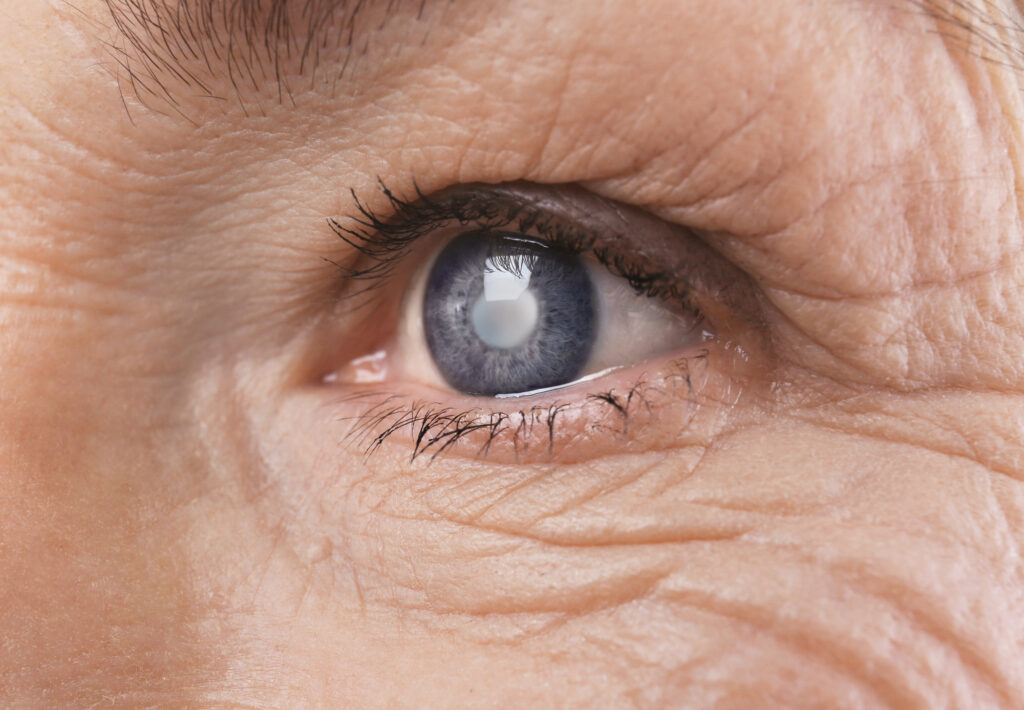
Most people begin to notice some level of vision impairment around middle age. In fact, the risk of cataracts increases every decade once we reach age 40.
Cataract surgeries are very common, routine procedures. The majority of cataract surgeries have positive results and no complications.
If you’re worried about your vision and think you may have a cataract, keep reading to learn everything you need to know about cataract and cataract surgery.
What Is Cataract Surgery?
Cataract surgery corrects the symptoms of cataracts, such as blurred vision. Cataract surgery involves removing the clouded lens from the eye and replacing it with an artificial lens.
When Is Cataract Surgery Necessary?
If you are experiencing vision problems, but aren’t sure if you need cataract surgery yet, consider the following questions:
Can I see well enough to perform my job and drive to work safely? Do I find it difficult to see when exposed to bright lights?
Do my vision problems limit my abilities to function independently? Do I have difficulty cleaning, cooking, shopping, moving around my home, or taking medications?
If you’re experiencing cataract symptoms, it’s a good time to consider cataract surgery.
What to Expect From Cataract Surgery
As with any surgery, you’ll have certain requirements such as not eating or drinking within 12 hours of surgery. Here’s what else you can expect before, during, and after cataract surgery.
Before
About a week before your scheduled cataract procedure, your doctor will measure the shape of your eye(s). This is done via ultrasound and is completely pain-free.
The purpose of this measurement is to determine the appropriate type of lens implant. Most cataract surgery recipients receive intraocular lenses. However, if you have other vision issues you may require a different type of lens.
During
In most cases, cataract surgery is an outpatient procedure. It takes about an hour to complete.
Cataract surgery begins with your doctor applying eye drops to your eye that will dilate your pupil. Then your doctor will use a local anesthetic to numb the eye. If you are anxious you may also receive a sedative to allow you to relax.
During the procedure, the doctor will remove your clouded lens and replace it with an artificial lens. Artificial lenses improve your vision and alleviate the cloudiness of cataracts by focusing light on the back of your eye.
After
Once the surgery is complete, your vision should start to improve within a few days. Of course, as your eye is healing your vision will remain blurry.
Schedule several follow-up appointments with your doctor to make sure you’re healing properly. You should feel completely healed after eight weeks.
Cataract Surgery Risks
Although the majority of cataract surgeries go off without a hitch, there are some risks pertaining to cataract surgery. These include:
- Infection and inflammation
- Swelling around the eye
- A droopy eyelid
- A secondary cataract
- Glaucoma
- Retinal detachment
- Some loss of vision
These risks are highly unlikely, however, your risk for complications increases when you have other eye diseases. The best course of treatment is to resolve your other eye issues before having cataracts surgery.
Cataract Surgeries Summarized
Cataract surgeries are a common, low-risk procedure to correct the blurred vision associated with cataracts. It is an outpatient procedure, which means you won’t spend time in the hospital other than the hour the procedure takes.
For more great articles like this, check out our Healthy Lifestyle section!












